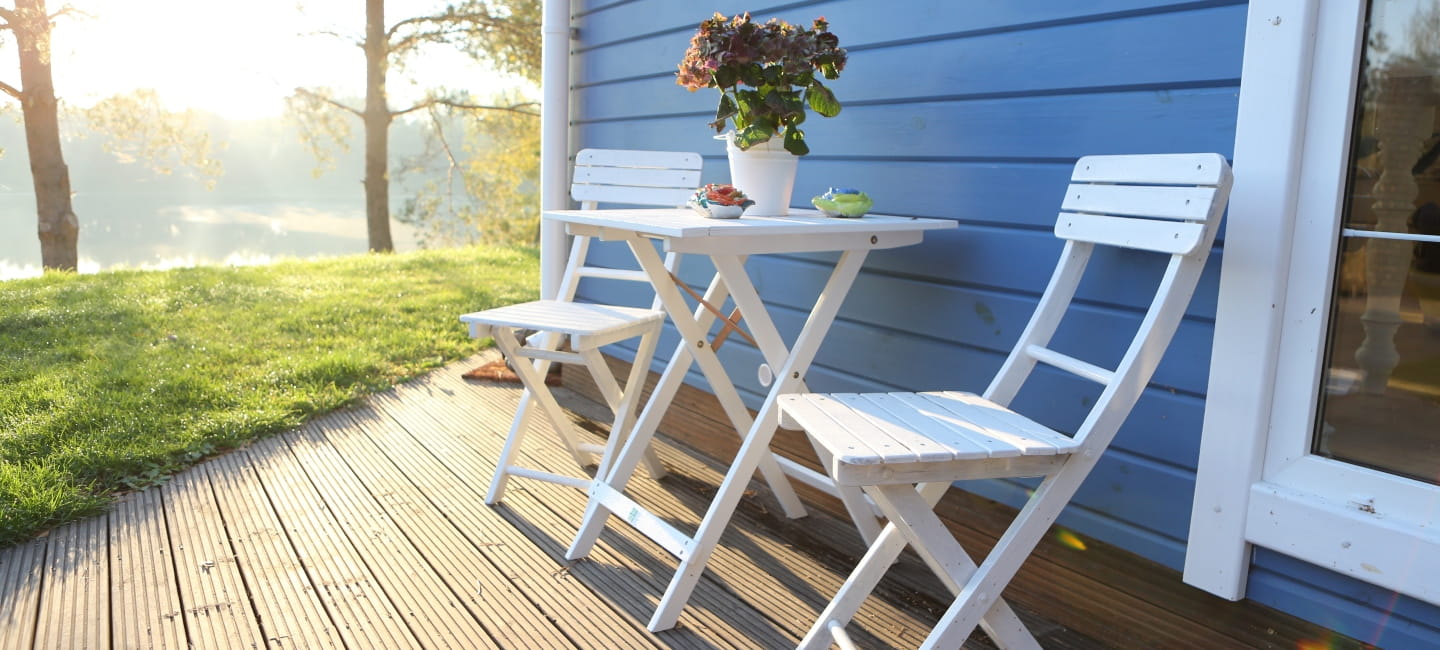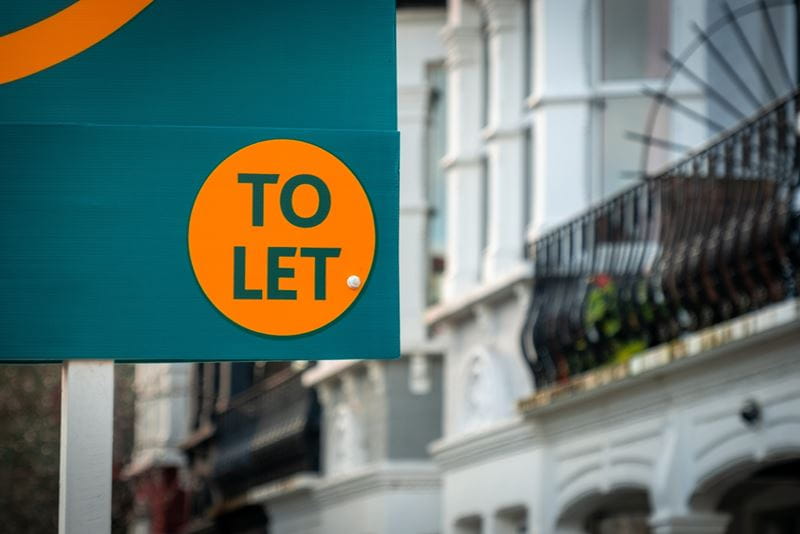
This article is for general guidance only and is not financial or professional advice. Any links are for your own information, and do not constitute any form of recommendation by Saga. You should not solely rely on this information to make any decisions, and always obtain independent, professional advice for your own particular situation. All information in this article is correct at the time of publishing, but laws, entitlements, tax treatments and allowances may change in the future.
Once the mortgage is paid off and you’ve finished work - or you’re at least thinking about winding down your hours - you might be wondering what's next.
Given the median age of the average landlord in England is 58, and almost two-thirds (63%) of landlords are aged 55 or older, it’s clear that many in the same position as you have thought about investing in property.
The idea behind such an investment is not only to enjoy the rental income but to hold it for the long-term, perhaps 10 years plus, in the hope it’ll increase in price.
(Of course, there’s no guarantee this will happen, and if you do make a profit, you could be liable for Capital Gains Tax, so make sure you do your research before committing.)
There are plenty of options when exploring rental property, and two of the most popular are purchasing a holiday let that you could also use every year, or homes that tenants might end up living in for long periods.
While buy-to-let (BTL) properties have had recent changes to the rules to make them less attractive as an investment, they still can give an all-year-round income, and you’re free to choose where you go on holiday rather than being tied to one place.
A holiday home currently sits under a more generous tax regime, meaning it could be an attractive investment if you and your family prefer to enjoy frequent stays at your favourite destination, while providing a source of income for the time you’re not there.
However, in the Spring Budget, the Chancellor announced that the tax advantages offered for owning a ‘furnished holiday let’ (FHL) will be abolished from April 2025 to bring them into line with those that govern BTL properties.
This means you’ll lose the ability to deduct certain costs against tax as well as some Capital Gains advantages - so will a holiday let still be as attractive an investment in the future?
When it comes to choosing a rental property, you’ll need to think carefully about both where you buy and how you'll manage it.
For a holiday home it’s important to choose a destination you know you’ll be happy to return to year after year and one that’s desirable for other holidaymakers as you’ll want to keep bookings flowing.
But even buying a holiday let could become more challenging, with incoming government legislation that will require you to get planning permission to offer the property as an FHL.
This, combined with the proposed change to the tax regime on holiday lettings, is designed to stop some towns being so full of short-term lets that residents can’t find places to rent or buy.
If you choose somewhere far away from your home, you’ll need to consider who will look after bookings and property maintenance. A holiday lettings agent is an option, and they can help with the upkeep and marketing of the property too, but this will eat into your profits.
You can choose to do it all yourself, but this will involve making sure the property is furnished adequately and up to certain regulations. You’ll also need someone to handle the cleaning and linen switch on changeover days or do it yourself – but that might quickly become a full-time job.
For a BTL property you don’t need to like the area yourself, but it needs to be one that will be in demand by the demographic suited to the property you buy – young professionals in a city centre or families in the suburbs, perhaps.
There's a lengthy list of things you’ll need to do before (and while) letting out a place for longer-term lets.
The National Residential Landlords Association (NRLA), the UK's largest membership organisation for private residential landlords, states that there are now more than 150 Acts of Parliament placing obligations on landlords, which is an increase of over 30% since 2010.
You need to make sure you carry out an annual gas inspection and ensure any electrics are up to scratch. There are also obligations for maintenance and fire safety, among many others.
As with a holiday let, you’ll need to decide if you want a lettings agent to handle the rental (especially if it’s not close to where you live).
These agents can undertake many of the tasks that would require frequent trips otherwise - including making sure certificates are in place, finding tenants and general maintenance. This can take the hassle out of ownership but will take a portion of the monthly rent.
According to holiday lettings firm Sykes, the average annual turnover of a UK holiday let was £24,000. In the peak months research suggests you might earn more in a week than a long-term let will generate in a month.
Remember that using the place for your own family holidays means you will need to adjust the figures for a projected income from rent and in some weeks during times when demand is low, you can expect the place to be empty – will you be able to cover costs during this period?
When it comes to a buy-to-let property the rent should be more consistent than a holiday let - once you get tenants in. The level of income will depend on the market conditions at the time.
Rightmove revealed in January 2024 that advertised rents are 9.2% higher compared with a year previously. Tenants outside London were typically facing an average rent of £1,280 per calendar month, marking the sixteenth consecutive record rise in Rightmove’s analysis.
This doesn’t mean that rental demand will continue to increase – recent reports have suggested a levelling-off of price rises. Planning for the long-term means thinking whether you’ll be able to afford the costs of keeping the property if rental demand cools, or what you’ll do if you struggle to get tenants in for an extended period.

Purchasing any kind of second property will trigger a 3% Stamp Duty Land Tax levy in addition to the standard rate.
For both kinds of property tax will be due on rental income, says Paul Barham, Senior Tax Partner at accountancy firm Mazars.
“Profits from property investment will be subject to income tax for both holiday lets and buy-to-lets and reported within a self-assessment tax return.”
There are currently some tax reliefs for holiday homes that meet criteria for a ‘furnished holiday let’. You’ll need to adhere to strict limits on how much you can use the property throughout the year – current legislation states that it must be available for rent for at least 210 days a year, and let for at least 105, to qualify as an FHL.
You should read up on the full list of criteria to understand if it’ll fit your plans. You cannot count the days when you’re staying in the property, as HMRC does not consider the property to be available for letting while you’re holidaying there.
Barham says: “Where a property qualifies as a furnished holiday let, there could [currently] be an advantage, as it may be possible to claim allowances on some items that would not typically be the case in a buy-to-let.
“For those who will need a mortgage, it’s useful to know that furnished holiday lets can also qualify for full mortgage interest relief against rental income.
“This differs to a buy-to-let, where mortgage interest is not allowable as a full deduction, and instead the interest is only eligible for basic rate tax relief on the income tax liability.”
However, the changes outlined in the Spring Budget 2024 will see these advantages abolished for FHLs from April 2025.
“With the announced plans to scrap FHL tax reliefs, this will change the landscape for holiday let investing, so FHL owners could face a higher tax bill from next April,” added Barham.
If a mortgage is required to buy your new property, you’ll need a specialist home loan. This means while you’ll get the financial help you’ll need for the transaction, if you can’t keep up with the repayments, your property could be repossessed.
Make sure you’ve planned for the long term when thinking about such an investment and get professional help if you’re at all unsure.
There are plenty of relevant mortgages available from high street and specialist lenders, so you should find yourself with a decent number of options.
Mark Harris, Chief Executive of mortgage broker SPF Private Clients, says: “When applying for a buy-to-let mortgage, the lender will base its lending on an assessment of the client, property and likely rental income. The lender will then stress test this, which will determine the amount lent.
"It may be possible to obtain a buy-to-let mortgage with as little as a 15% deposit but typically double that is required.
“The buy-to-let mortgage market is around 25 to 30 years old now and is supported by a number of banks ranging from high street lenders to building societies and specialist lenders, so the options are wide and varied.”
Harris highlights that holiday let mortgages aren’t offered by all lenders, but since the pandemic and increase in number of people holidaying closer to home, more are coming to the market.
However, it’s unclear whether intended legislation will influence the availability of the necessary mortgages.
“Lenders may consider factors such as location, rental potential, and the borrower’s experience in managing holiday lets. It differs from lender to lender, but criteria are stricter for holiday lets than buy-to-let,” says Harris.
He adds that deposits required for holiday let mortgages are generally higher than buy-to-let with the minimum normally around 25 to 30%.

There’s billions sitting unclaimed in shares and dividends – find out if any belongs to you.

From their first savings account to their first home, find out how your gifts can make the biggest impact for your grandchildren
.jpg?la=en&h=354&w=616&hash=653168623B92F3457D40ACA115D37B3E)

.jpg?la=en&h=354&w=616&hash=458B0288E9852F4B63A433E2FDD375E7)



We're here to help you make the most with your money. With a rage of financial services designed with over 50s in mind.